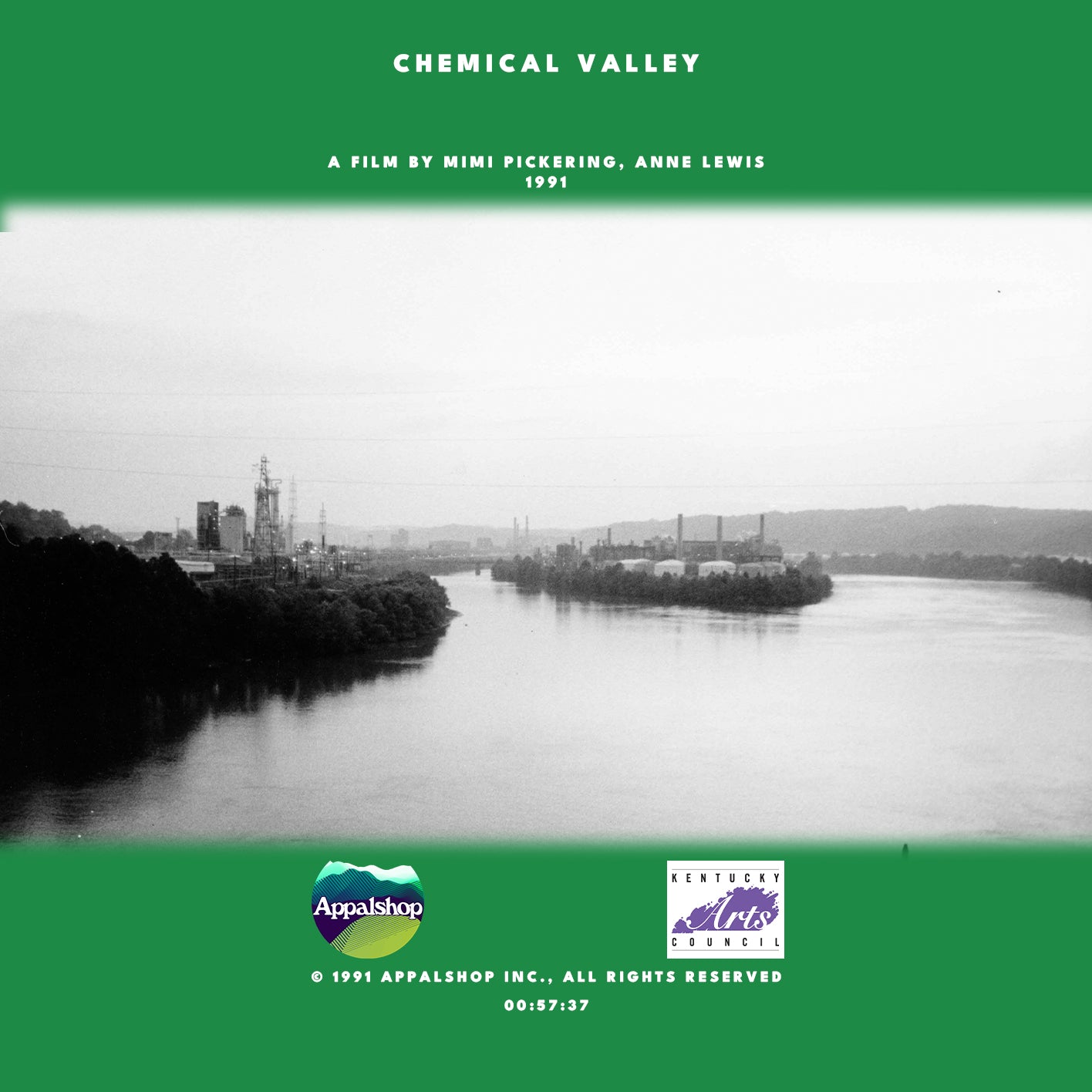Appalshop Inc.
Chemical Valley (DVD)
Chemical Valley (DVD)
Couldn't load pickup availability
Mimi Pickering, Anne Lewis. 1991. 3/4" U-matic.
On Dec. 3, 1984, the worst industrial accident in history occurred when a toxic gas known as MIC leaked from a Union Carbide pesticide plant in Bhopal, India, killing at least 3,500 people and permanently disabling 50,000. The tragedy in Bhopal brought international attention to the predominantly African-American community of Institute, West Virginia, site of the only Union Carbide plant in the United States that manufactured MIC. Chemical Valley begins with Bhopal and the immediate response in the Kanawha Valley, an area once dubbed by residents “the chemical capital of the world," following events in the valley over the next five years as lines are drawn and all sides heard in the debate between those who fear for their livelihood and those who fear for their lives. Chemical Valley explores issues of job blackmail, racism, and citizens’ right to know and to act as it documents one community’s struggle to make accountable an industry that has all too often forced communities to choose between safety and jobs.
“If a picture is worth a thousand words, Chemical Valley is worth millions. It accurately portrays the air pollution horrors, as well as the arrogance, of industry.”— West Virginia Environmental Council
“Ultimately Chemical Valley is about freedom of information: why we need it, how to get it, how to interpret it. It is also a powerful exposition of how women cope with threats to families, job, health, and communities, even when most of the people defining the issues happen to be men.”— Appalachian State University
“A film put together with skill and clarity. Remarkable interviews, sense of place, and pacing throughout. Integrity and intelligence of exceptional quality.”— American Film Festival
“A compelling case study in the environmental racism that marks the distribution of environmental costs and benefits in our society.”— Kentucky Resources Council
All films in the Appalshop collection are protected under Title 17 of the United States Copyright Law. The unauthorized distribution or public performance of copyrighted works constitutes copyright infringement under the Copyright Act, Title 17 U.S Code Section 106(3)-(4). This conduct may also violate the Berne Convention for the Protection of Literary and Artistic Works and The Universal Copyright Convention, as well as bilateral treaties with other countries that allow for protection of Rights Holder copyrighted works even beyond US borders. To receive rights for public performance of our works, including educational or institutional licensing, please contact Appalshop Sales to complete the purchase at 606-633-0108 or sales@appalshop.org.
You can learn more about Appalshop and our work at www.Appalshop.org
Share


